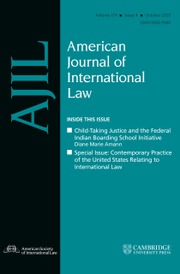Part I. Introduction
1:Modernity and Granularity in History and International Relations, Mlada Bukovansky and Edward Keene
Part II. Readings
2:Origins, Histories, and the Modern International, R. B. J. Walker
3:Historical Realism, Michael C. Williams
4:Liberal Progressivism and International History, Lucian M. Ashworth
5:Historical Sociology in International Relations, Maïa Pal
6:Global History and International Relations, George Lawson and Jeppe Mulich
7:International Relations and Intellectual History, Duncan Bell
8:Gender, History, and International Relations, Laura Sjoberg
9:Postcolonial Histories of International Relations, Zeynep Gulsah Capan
10:International Relations Theory and the Practice of International History, Peter Jackson and Talbot Imlay
11:Global Sources of International Thought, Chen Yudan
Part III. Practices
12:State, Territoriality, and Sovereignty, Jordan Branch and Jan Stockbruegger
13:Diplomacy, Linda S. Frey and Marsha L. Frey
14:Empire, Martin J. Bayly
15:Barbarism and Civilization, Yongjin Zhang
16:Race and Racism, Nivi Manchanda
17:Religion, History, and International Relations, Cecelia Lynch
18:Rights, Andrea Paras
19:The Diplomacy of Genocide, A. Dirk Moses
20:War and History in World Politics, Tarak Barkawi
21:Nationalism, James Mayall
22:Interpolity Law, Lauren Benton
23:Regulating Commerce, Eric Helleiner
24:Development, Corinna R. Unger
25:Governing Finance, Kevin L. Young and Signe Predmore
26:Revolution, Eric Selbin
Part IV. Locales (Spatial, Temporal, Cultural)
27:The 'Premodern' World, Julia Costa Lopez
28:Modernity and Modernities in International Relations, Ayse Zarakol
29:The 'West' in International Relations, Jacinta O'Hagan
30:The Eighteenth Century, Daniel Gordon
31:The Long Nineteenth Century, Quentin Bruneau
32:The Pre-Colonial African State System, John Anthony Pella, Jr.
33:The 'Americas' in the History of International Relations, Michael Gobat
34:'Asia' in the History of International Relations, David C. Kang
35:The 'International' and the 'Global' in International History, Or Rosenboim
Part V. Moment
36:The Fall of Constantinople, Jonathan Harris
37:The Peace of Westphalia, Andrew Phillips
38:The Seven Years War, Karl W. Schweizer
39:The Haitian Revolution, Musab Younis
40:The Congress of Vienna, Jennifer Mitzen and Jeff Rogg
41:The Revolutions of 1848, Daniel M. Green
42:The Indian 'Mutiny', Alexander E. Davis
43:The Berlin and Hague Conferences, Claire Vergerio
44:World War One and Versailles, Duncan Kelly
45:Sykes-Picot, Megan Donaldson
46:World War Two and San Francisco, Daniel Gorman
47:The Bandung Conference, Christopher J. Lee
48:Facing Nuclear War: Luck, Learning, and the Cuban Missile Crisis, Richard Ned Lebow and Benoît Pelopidas
Part V. Conclusion
49:History and the International: Time, Space, Agency, and Language, Maja Spanu and Christian Reus-Smit






